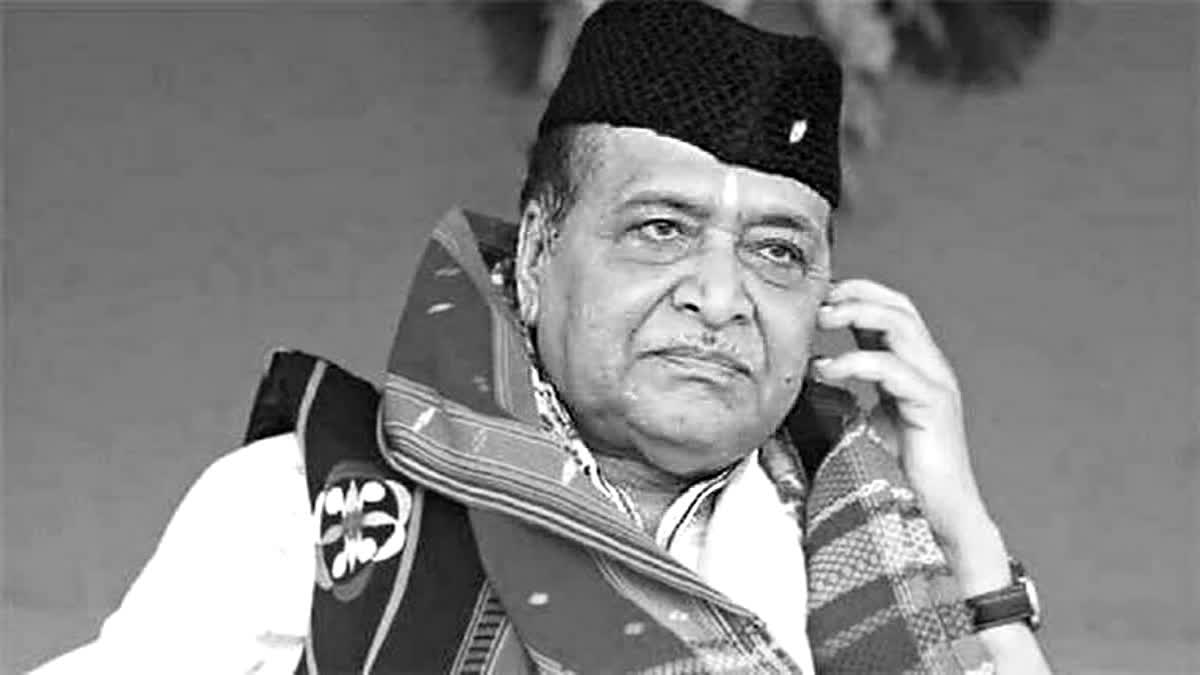Hyderabad: Today marks the 13th death anniversary of the legendary Assamese singer-composer Bhupen Hazarika, whose body of work remains a memorable part of Indian music history. Among his many iconic songs, Dil Hoom Hoom Kare from the 1993 film Rudaali stands out for its haunting beauty and for its ability to cross cultural boundaries, capturing the heartache of millions across the country. In a career spanning six decades, Hazarika's music often celebrated themes of sorrow, resilience, and the spirit of humanity, but he frequently joked that despite his vast repertoire, it was Dil Hoom Hoom Kare that made him a household name in India.
The song, originally based on Hazarika's Assamese track Buku Hom Hom Kore, was adapted with Hindi lyrics for Rudaali, directed by Kalpana Lajmi. This adaptation was a collaboration between Hazarika, Lajmi, and the celebrated lyricist Gulzar, who was instrumental in creating the Hindi version. Known for his poetic sensibility, Gulzar replaced the Assamese title phrase Hom Hom with the phonetically similar Hoom Hoom, rather than going with a literal Hindi translation, to retain the emotional weight of the original. The result was a song that captured the sadness and despair of the film's protagonist, Shanichari, played by Dimple Kapadia, with an intensity that lingers even today.
Lajmi, who was a close associate of Hazarika, often recounted stories from the making of Rudaali. Talking about making of Dil Hoom Hoom Kare, Kalpana once in an interview recalled that she initially planned to record the song with a female playback singer to match Kapadia's on-screen persona. However, after hearing Hazarika's rendition during a dubbing session, both legendary singer Lata Mangeshkar and recording engineer Amil Sood urged Lajmi to keep Hazarika's version.
His deeply resonant voice captured melancholy that no other vocalist could replicate. As Lajmi put it, Bhupenda's voice had a unique emotional depth that amplified the sadness and longing in the song. She said, "Dimple, too, was so moved by his voice that she insisted we retain his version, even though it felt unusual to have a distinctly male voice for a female character's song."
This decision turned out to be serendipitous. Lajmi recalled that during a pivotal scene, Dimple Kapadia, who played Shanichari, requested that Bhupen da's version be played in the background to help her get into character. This was during the shooting of a particularly intense, 400-foot uncut shot at 4 am in a remote desert location. Shanichari is finally brought to tears for the first time when she learns that her estranged mother has died. Kalpana described this scene as one of the most powerful in the film, a raw, poignant moment when Shanichari's emotional reserve shatters.
Kapadia's decision to forgo a re-take allowed the scene to unfold with a stunning naturalism that heightened the film's impact. "When Shanichari breaks down, I silenced both her voice and the music," Lajmi explained, "allowing only the sound of the desert wind as her silent scream filled the air."
In addition to Hazarika's unforgettable contribution to the film's soundtrack, Rudaali was celebrated for its fearless exploration of complex emotional themes. Dimple Kapadia's portrayal of Shanichari earned her the National Award for Best Actress, and Hazarika's composition Dil Hoom Hoom Kare has continued to resonate with audiences as a timeless expression of sorrow and resilience.
As we remember Bhupen Hazarika on his 13th death anniversary, Dil Hoom Hoom Kare persists as proof of his profound ability to convey emotion through music. Hazarika's lasting legacy reminds us of the power of music to cut across languages, cultures, and generations. And perhaps, as Lajmi suggested, this song was always meant to be sung in his voice, resonating with the sorrow and strength of Shanichari.
READ MORE



